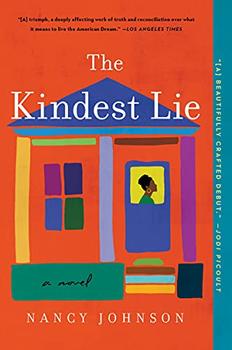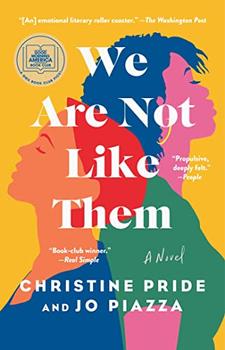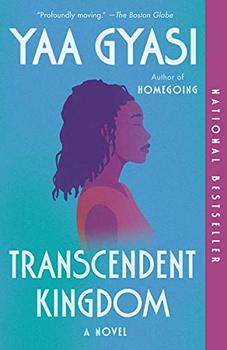Summary | Excerpt | Reading Guide | Discuss | Reviews | Beyond the book | Read-Alikes | Genres & Themes | Author Bio

In a stirring novel about secrets and black lives, Ruth Tuttle from small-town Indiana has tried to defy what Faulkner wrote about the past: "The past is never dead. It's not even past." Ambitious and brainy Ruth attempted to bury the experience of giving up her child as a teenage mother. She was aided by her grandmother Ernestine, who told her, "I saw every dream we had for you rotting and dying off. You were smart as a whip from the day you were born. You could have been anything you wanted to be in the world. But not with a baby." Ruth's grandfather, too, encouraged her to look to the future: "Study hard and get that piece of paper, girl. That's going to be your ticket to the big leagues someday. Then nothing can stop you." His advice was prescient. Moving from a working-class existence to the Ivy League to black excellence, Ruth trampled all the stereotypes that told her what she could not achieve as a child of the Rust Belt, as a girl of color who didn't know her father and whose mother had run off.
The Kindest Lie depicts Ruth's search for what she lost at the age of 17, during the summer of 1997, when her baby was given away. The event haunts Ruth on those rare occasions when she allows the past to intrude. By 2008, she is a Yale grad and a chemical engineer living in Chicago, married to a magnetic man from the black upper class named Xavier Shaw. When Barack Obama is elected president, Ruth and Xavier are on an emotional high. They see themselves in Obama. Like him, the Shaws attended the best schools, survived as the only black people in the room, studied mercilessly, worked hard and pretended racism was manageable.
After four years of marriage, Xavier is antsy when it comes to having children: "You know we'd kill the parenting game, right. Our first son should be Xavier Jr. Carry on my name." His enthusiasm doesn't register with Ruth, who feels destabilized, as choosing Yale over her baby bruised her in ways she has never acknowledged. During one messy argument, Xavier lashes out at her: "If a man's wife doesn't want his child and can't stand to have him touch her anymore, it's usually because there is another man." His hectoring forces Ruth to tell him she had a baby in a shotgun house and that her son is still alive.
Saying it out loud isn't healing. Although Ruth stops short of begging Xavier to forgive her, she is unable to face her husband's scorn, and decides to return home to Mama (her grandmother) and her brother Eli. As she leaves Chicago, she sheds one skin for another. The engineer becomes the girl who fell from grace. Art houses and tony restaurants are exchanged for silos and windmills. Ganton, Indiana is a small manufacturing town that has not adapted to the changing times, and Ruth has avoided it for years.
Desiring redemption in a familiar place, Ruth is energized by her unrealistic quest to find her son. Her grandmother, though, bursts her bubble: "You're having regrets now because you don't like what you did. But there's no going back. I'll tell you something else young lady. You keep turning up the dirt, you bound to run into a snake one day." It's not a snake Ruth runs into, but a white boy named Midnight — a lonely, reckless sixth-grade kid grieving his dead mother. As he is being raised by his grandmother the way Ruth was raised by hers, it is not so peculiar that the two of them become allies.
Part of what is so captivating about The Kindest Lie is that Johnson nestles white grievances — "Black people are taking over everything" — next to black trauma. A lynching memory of Mama's forced me to put the book down and grab a glass of water. I thought of Paul Laurence Dunbar's poem "The Haunted Oak": "I feel the rope against my bark / And the weight of him in my grain / I feel in the throe of his final woe / The touch of my own last pain."
There is a moment when a black child named Corey, holding a pellet gun, is confronted at the Wabash River by the police, who are ready to arrest or shoot him. This moment is tragically familiar, and inspired, I suppose, by the real-life murder of Tamir Rice, who was playing with a toy gun when he was killed by Cleveland police. It serves the purpose of engaging the reader with the fallacy created by racial profiling and segregation, wherein the innocent pose the same threat as the guilty. Take the passage where Corey's mother says, "My biggest worry has been that he'll grow into one of those Black men that white people fear and then kill because of that fear." This is an expression of separate lives: white fears on one side of town, anxiety on the other and the conversations about it that we refuse to have.
The kindness in a lie is not in the lie itself. It is in how the lie acts as an analgesic and blocks pain. A lie is a door half-open: What is behind it is manipulative and sordid. What is in front of it is good intentions. The nature of Ruth's family is to reduce the whole truth. Is that a lie? It depends on the interpretation, but I think so. The Tuttles cut the fat off the bone to prevent harm because, being black in America, they are already harmed. So, if you're Ruth, you lie about your past. If you're Mama, you lie about the legality of a home-birth adoption. If you're Xavier, you lie about the existence of a post-racial era. None of these lies are kind, despite the book's title. They are, however, necessary. Eventually, the reader adapts to the way these sparse untruths float over the story. Perhaps that is Johnson's point: Lies nestle in the spaces where we live. Are we self-aware? Can we see them?
James Baldwin once said, "The imagination of a novelist has everything to do with what happens to his material." In The Kindest Lie, Johnson imagines black shame. Conscious of that shame, she builds Ruth's story with gentleness. She stacks like a sandcastle all the parts of the character, so by the end we are just as attached as Ruth is to her lost baby, her marriage, her career ambivalence, her love for her grandmother and brother.
At the start of the book, Ruth has a secret, and at the end she must make peace. She must love herself by re-discovering the girl who was abandoned by her mother and who gave up motherhood so she could go to Yale. Her secret needs to be unburied. While this process is sad, the writing of it is so enthralling you won't want the story to end. It's that kind of novel: Captivating, empowering and fulfilling.
![]() This review was originally published in The BookBrowse Review in March 2021, and has been updated for the
February 2022 edition.
Click here to go to this issue.
This review was originally published in The BookBrowse Review in March 2021, and has been updated for the
February 2022 edition.
Click here to go to this issue.

If you liked The Kindest Lie, try these:

by Christine Pride, Jo Piazza
Published 2022
Told from alternating perspectives, an evocative and riveting novel about the lifelong bond between two women, one Black and one white, whose friendship is indelibly altered by a tragic event—a powerful and poignant exploration of race in America today and its devastating impact on ordinary lives.

by Yaa Gyasi
Published 2021
Yaa Gyasi's stunning follow-up to her acclaimed national bestseller Homegoing is a powerful, raw, intimate, deeply layered novel about a Ghanaian family in Alabama.
Your guide toexceptional books
BookBrowse seeks out and recommends the best in contemporary fiction and nonfiction—books that not only engage and entertain but also deepen our understanding of ourselves and the world around us.